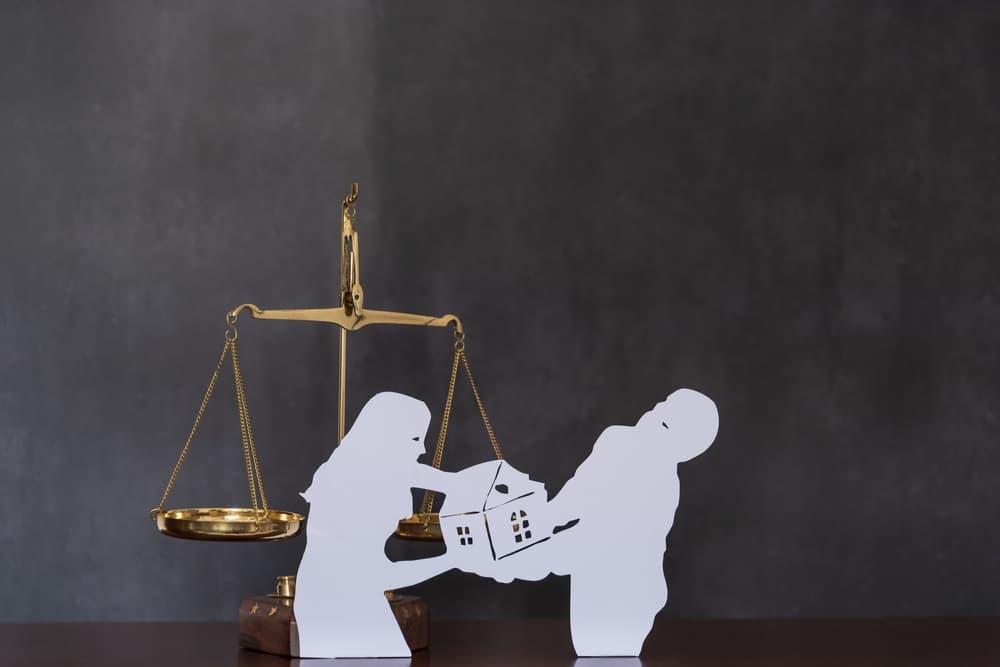
Going through a divorce is undoubtedly a challenging and emotional experience. It is perfectly natural to want the process to be over as soon as possible so you can move on with your life.
Many people who file for divorce want to know how long it will take for the court to finalize it. Once the divorce is finalized, the marriage is legally ended, and you are free to remarry.
However, there is no specific answer to the question of how long a divorce will take to finalize. The timeline for finalizing a divorce can vary depending on several factors.
The best way to know what to expect regarding your case’s timeline is to discuss your situation with a divorce lawyer in your area. They will know your state’s laws and identify any circumstances that might create delays in your case.
Further, the right divorce attorney can often keep your case on track, which can speed up the process. As soon as you suspect you might be getting divorced, schedule a consultation with a divorce firm near you.
It Is Natural to Want a Divorce to Conclude as Soon as Possible, but Never Rush the Process

Most people do not want their divorce case to drag on unnecessarily. The less time they have to deal with the legal system and their soon-to-be-ex-spouse, the better.
However, never rush the process. Rushing divorce proceedings may have unintended consequences and can do more harm than good.
Rushing the process may lead to hasty decisions that you may later regret. Divorce involves important decisions regarding child custody, division of assets, and spousal support, among other things.
You must take the time to carefully consider these matters, seek legal advice, and make informed choices that will have a lasting impact on your life.
Additionally, trying to expedite the divorce process may lead to increased tension and conflict between the parties. Rushing through negotiations and failing to address underlying issues can result in unresolved disputes and future legal complications.
Always find an experienced divorce attorney who can efficiently lead you through the process and address any roadblocks along the way.
Remember that divorce is not a race. While wanting closure and moving on is understandable, rushing the process can have long-lasting consequences. Take the time you need to prioritize your well-being and make informed decisions that will set you up for a brighter future.
Having the right divorce lawyer will keep your divorce on the right pace to protect your interests but prevent unnecessary delays.
Filing a Divorce Petition in Family Court
Simply initiating a divorce can be a complicated process. If you've decided to end your marriage, one of the first steps is to file a divorce petition in family court. This legal document initiates the divorce process and outlines the reasons for seeking a divorce.
To file a divorce petition, you'll need to gather important information such as your and your spouse's personal details, marriage date, and grounds for divorce. You need a divorce attorney who can guide you through this process and ensure you include all necessary information in the petition.
Once you file the divorce petition, the court will typically assign you a case number and set a hearing date. If you filed proposed settlement terms, the judge will review them and grant the divorce if they believe the terms are in accordance with the law.
This is where an experienced attorney can really be invaluable. They can represent you in court, present your case, and prevent delays with the family judge. If, for some reason, the judge does not approve the proposed settlement, it can significantly delay the finalization of the divorce.
The family court system can be confusing, and the divorce process can vary depending on the details and complexity of your situation.
Filing a petition is just the first step in finalizing your divorce, and many things can delay the process in the meantime. Never wait to hire a trusted divorce attorney who can take steps to keep moving your case in the right direction.
Some States Have Mandatory Waiting Periods for a Court to Grant a Divorce Petition
One significant factor to consider regarding the length of a divorce is whether the state where you are filing for divorce has a mandatory waiting period.
In some states, there is a mandatory waiting period after filing for divorce before the court can grant the petition. The waiting period might apply even if you file an uncontested divorce with no children and agreed-upon settlement terms.
This waiting period is designed to give couples a chance to reconsider their decision and potentially reconcile. The length of the waiting period varies from state to state, ranging from a few weeks to several months.
For example, California has a mandatory six-month waiting period from filing the divorce petition to when a judge can finalize a divorce. You should be aware of this waiting period when planning your divorce.
If You are Not in Agreement When You File for Divorce, the Case Will Take Longer

The timeline for finalizing a divorce can be significantly longer if you and your spouse disagree on key issues. Every state requires spouses to settle several issues, as they apply to the marriage, before a court can finalize a divorce. The resolution of these issues becomes part of the final divorce order.
Property Division
Dividing marital assets and debts can be a challenging and contentious aspect of divorce. Depending on the complexity of your financial situation and the level of agreement between you and your spouse, the property division process can vary in duration.
A divorce attorney can provide valuable advice on protecting your assets and ensuring a fair distribution.
Child Custody and Child Support
If you and your spouse have children, determining child custody and support arrangements will be necessary for your divorce proceedings.
The court's primary concern in child custody cases is the best interests of the child. They will consider factors such as the relationship with each parent, the child's preference (if of appropriate age), and the ability of each parent to provide for the child's needs.
Negotiating and finalizing child custody agreements can take time, as the court ensures that the arrangements are fair and in the child's best interests.
Spousal Support
Spousal support, also known as alimony, may also be a factor in your divorce case. The determination of spousal support depends on various factors, including the length of the marriage, the income disparity between you and your spouse, and each party's ability to support themselves.
The court will assess these factors and decide based on what is deemed fair and reasonable. Spousal support is often a highly contentious issue, so if one spouse requests support, it can often extend the length of the process.
Negotiation and Mediation
Some divorcing couples work together from the start and agree on how to resolve all relevant issues. This is the fastest way to resolve a divorce, as they can submit their settlement to the court with the divorce petition as soon as possible.
However, many spouses cannot agree on every matter right away. This is not surprising, as many spouses are divorcing due to inherent conflict and disagreements on values.
In such cases, the divorce attorneys will need to continue negotiations with one another to try to meet in the middle on each unresolved issue. They can exchange evidence and information, counsel their clients, and see if they can reach a resolution through informal negotiation.
If negotiations don’t work, spouses might attend mediation sessions to resolve these matters amicably. Such alternative dispute resolution methods allow you and your spouse to work through conflicts with the assistance of a neutral third-party mediator.
The mediator helps facilitate communication and guides you toward finding mutually acceptable solutions. These sessions can often expedite the process if you and your spouse are willing to cooperate and compromise.
While initial disagreements can delay the process somewhat, reaching a middle ground through negotiation or mediation can get the case moving forward again. The right divorce attorney can represent you and do everything possible to reach an out-of-court settlement, which leads to a faster end to your divorce case.
If Your Case Requires Litigation, It Will Take Longer

Divorce cases that require litigation can significantly lengthen the time it takes to finalize the process. Litigation is the formal process of taking a divorce case to court, where a judge will make decisions on various aspects of the divorce.
One factor that contributes to the lengthier timeline is the court's schedule. The court system is often busy and has a limited number of judges available to hear cases. This means that your case may have to wait its turn before it can be heard, resulting in delays that are beyond your control.
Additionally, the litigation process involves the preparation of legal documents, filing motions, conducting discovery, and arguing your case in court. Each step in the process takes time, as it requires careful attention to detail and adherence to legal procedures.
The challenges of your case and the cooperation of both parties can also affect the length of the litigation process.
You must have an experienced divorce attorney by your side if your case requires litigation. The right lawyer will know the court system and advocate for your best interests to the judge.
They have a thorough understanding of divorce laws and can ensure that your case is presented effectively in court. While the process may take longer, having a skilled litigator can help you achieve a fair and favorable outcome in your divorce.
A Divorce Attorney Can Help You Resolve Issues More Efficiently
All the steps of a divorce can feel overwhelming, especially regarding the legal procedures involved. That's where a skilled divorce attorney comes in. Having a trusted legal professional by your side can make the process smoother, more efficient, and less stressful.
One of the key benefits of working with a divorce attorney is their knowledge and understanding of family law. They stay up-to-date with the latest legal developments and have extensive experience in handling divorces. This allows them to provide valuable guidance and advice tailored to your unique situation.
Whether it's child custody arrangements, property division, or spousal support, a divorce attorney can effectively address these matters.
Furthermore, a divorce attorney brings an objective perspective to the table. Emotions can run high during a divorce, making it challenging to make rational decisions.
Your attorney can act as a voice of reason, helping you prioritize your needs and goals. They can provide an unbiased assessment of your case and offer options for resolution that you may not have considered on your own. This objectivity can be invaluable in reaching a fair and satisfactory agreement much faster.
In addition, a divorce attorney is skilled in negotiation and settlement. Rather than resorting to lengthy court battles, your attorney will strive to find common ground and advocate for your best interests.
They can effectively communicate with your spouse's attorney to reach mutually acceptable agreements. This not only saves you time and money but also reduces the emotional toll of a prolonged legal battle.
When you’re seeking to finalize a divorce, enlisting the services of a divorce attorney can greatly expedite the process. Don't underestimate the value of having a trusted attorney by your side during this challenging time.
Always Consult a Divorce Lawyer Handling Your Case from the Start
By consulting with a divorce lawyer from the start of your case, you can ensure that you have proper legal representation and guidance throughout the process. While a lawyer cannot eliminate mandatory waiting periods or speed up court schedules, they can ensure the rest of your case moves at an efficient pace.
Consult a family law lawyer near you today. They can immediately begin preparing your file and advising you on the steps to take for as swift of a process as possible.
